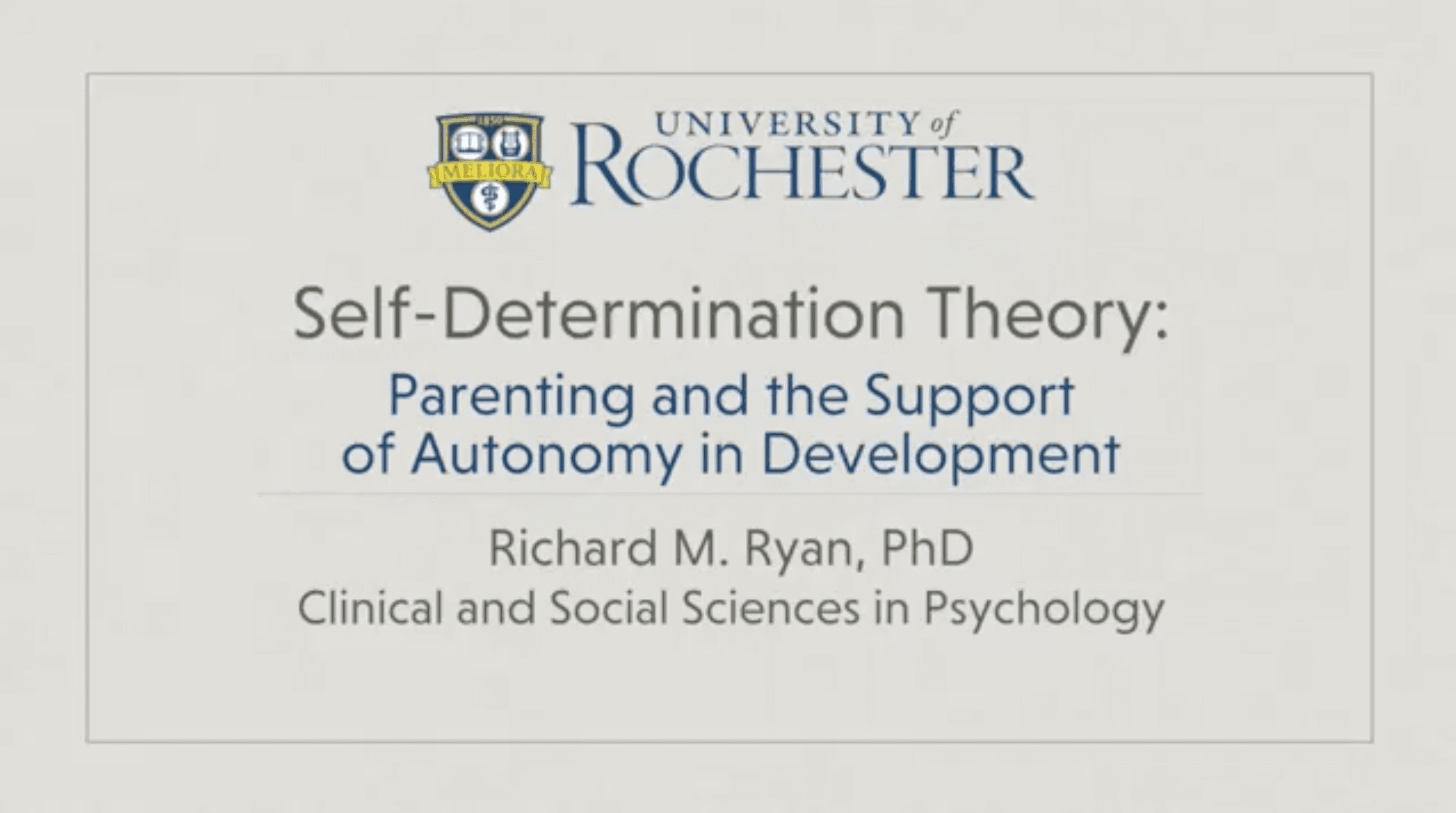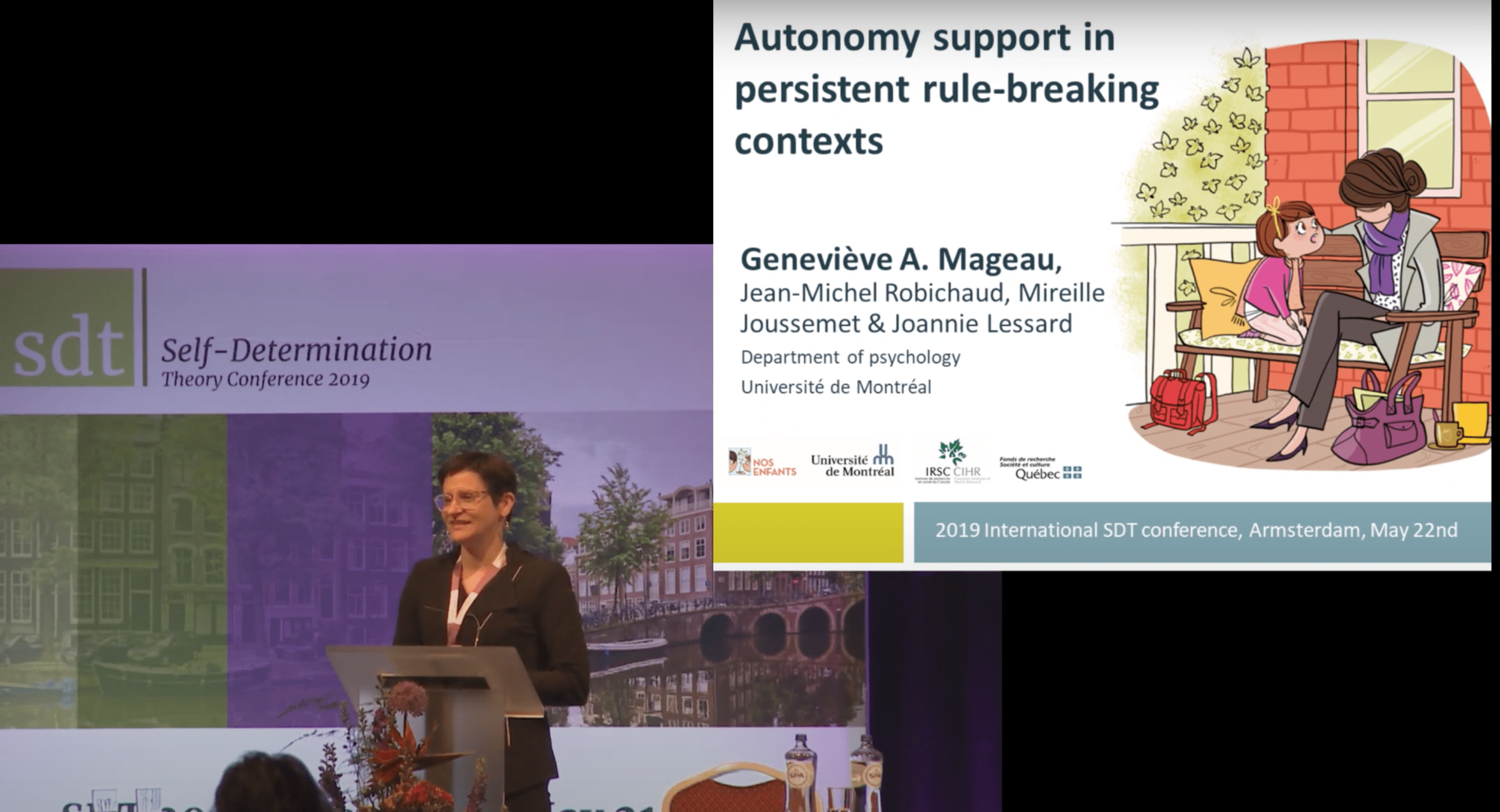If there was only one type of relationship in which satisfied vs. thwarted needs are the most crucial, I would say it’s in parent-child relationships! Among environmental factors, the most widely accepted predictor of child mental health is parenting quality. And if the basic psychological needs for relatedness, competence, and autonomy are universal, children have them too.
Thirty years ago, Wendy Grolnick and Richard Ryan paved the way for an extensive body of research documenting the benefits of parental involvement, structure, and autonomy-support, posited to support relatedness, competence and autonomy. Results of cross-sectional, longitudinal and intervention studies suggest that raising children in this autonomy-supportive way is associated with greater child internalization, motivation, self-regulation as well as greater psychological health and well-being. Autonomy-support in the parent-child relationship is thus key for preventing ill-being and promoting well-being.
Unfortunately, providing those key “nutriments” is not necessarily natural or easy! As parents, we constantly have to deal with numerous demands and though we may want the best for our children, we can find ourselves saying or doing things that don’t support or even thwart our children’s psychological needs. Studies aiming to identify determinants of controlling practices (e.g., conditional love; criticism; manipulation) point to those external and internal sources of pressure (e.g., stressful lifestyle; perfectionism). Sadly, pressure can also stem from children’s themselves, as the parental resources required to support children’s needs are more easily depleted when children behave in disruptive and/or worrisome ways. Ironically, those children “pull” for more controlling practices, which can exacerbate their difficulties.
So parents’ challenge resides in avoiding this pitfall and in supporting children’s innate growth tendencies of intrinsic motivation and internalization as much as possible. When reading the section (below) about how to put these principles into practice, please keep in mind that it is impossible to be 100% need-supportive all the time. When you will slip (which is inevitable), try to replace self-criticism by some self-compassion and to also pay attention to your own psychological (and physical!) basic needs.
Children’s intrinsic motivation will flourish as long as no obstacle (external contingency) is present. It may seem easy to let this natural tendency take its course but as parents, it can be hard to resist the temptation to control children’s play, discoveries and developing mastery. To preserve the inherent interest of intrinsically activities and its healthy concomitants, try to:
-
Understand child’s perspective and cultivate activities that are interesting to them;
-
Avoid adding incentives or evaluation (even positive evaluation) for behaviors or activities; and
-
Foster activities done for their own sake instead of having child do the activity while expecting something in return.
Though children also have a natural tendency to internalize the values and ways of life from their surroundings, it is facilitated or hindered by the degree to which they feel accepted as they are, capable and volitional. Providing the guidance and structure they need is essential, even if making demands and setting limits is often not enjoyable for parents. Research has pointed to some helpful ways to play that socialization role.
-
First, acknowledging children’s experience and viewpoints is key, rather than denying, ignoring or minimizing what they feel and think. That doesn’t mean that parents should eliminate requests and limits!
-
But when providing such structure, communicating why requested do’s and don’ts are important is helpful.
-
Other ways to support children’s autonomy is to let them make some decisions about the way they will engage in requested tasks, and to foster children’s active participation in problem-solving.
-
Finally, replacing pressuring tone and words (e.g., have to, must) by an informational, considerate style is also a way to support children’s autonomy in this context.
These autonomy-supportive parenting practices have been associated with positive indicators of child development from toddlerhood to adolescence.













